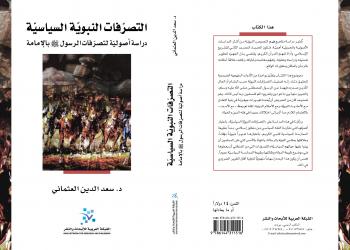
The study of approaches to understanding the prophetic texts is one of the most important fundamentalist and modern studies. The fact that the hadith is the second source of Islamic legislation and a tool for understanding the Noble Qur’an requires that efforts be made to develop its classification, study and analyze it, understand its aims and objectives, and reveal the relationship of its rulings with time and place and changes in reality.
The topic of this book is one of the methodological tools necessary to achieve this. It is the classification of the prophetic actions according to the status or the situation in which they were issued by the Chosen Messenger, may God bless him and grant him peace, and distinguish between them between what is a religion and permanent legislation for Muslims, and what is not. It is a classification that was supposed to bring about fundamental changes in the structure of dealing with the hadiths of the Prophet and with religious rulings, but unfortunately it did not receive the necessary attention, which led to many imbalances in the jurisprudence of religion and life.
We focused in this study on the "political prophetic behaviors", considering their importance in approaching political jurisprudence from an Islamic perspective, starting with the nature of the noble Prophet's political practice, as it is a temporary worldly measure, its relationship to the tenets of prophethood and the message, and ending with the foundations on which Muslims should build their political lives and the perceptions that It is logical that they carry it on the issue of the nature of the state, its functions, and the nature of political practice in general. Hopefully this research will be a systematic contribution to show the prospects for the necessary change in that.
